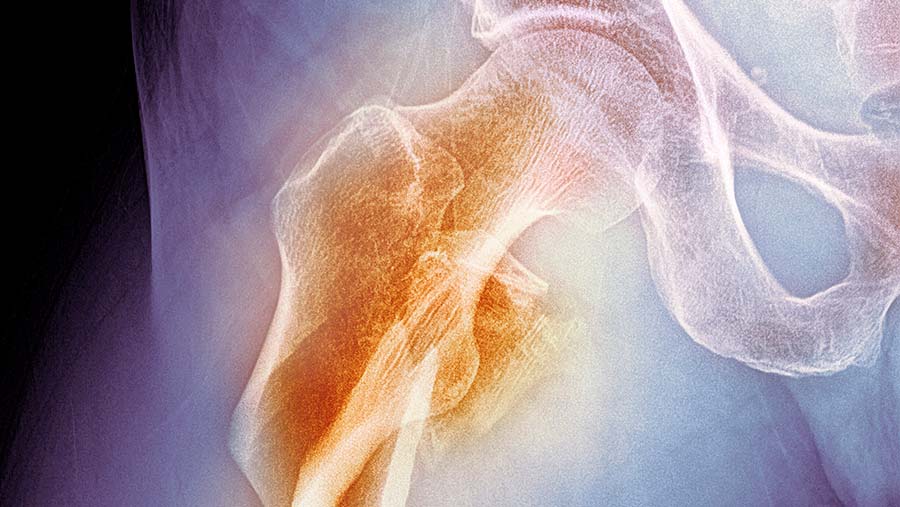Vegans more prone to fractures than meateaters, study shows
 © Science Photo Library
© Science Photo Library Vegans, vegetarians and pescatarians may be at a higher risk of bone fractures compared with meateaters, new Oxford University research has shown.
The results from an 18-year study reveal that vegans have a higher risk of fractures anywhere in the body compared with meateaters, while all non-meat eaters have a significantly greater risk of hip fractures.
See also: Meat eaters or vegetarians – who has the better arguments?
“This is the first comprehensive study on the risks of both total and site-specific fractures in people of different diet groups,” said lead author Tammy Tong, nutritional epidemiologist at the Nuffield Department of Population Health.
“We found that vegans had a higher risk of total fractures, which resulted in close to 20 more cases per 1,000 people over a 10-year period compared to people who ate meat.
“The biggest differences were for hip fractures, where the risk in vegans was 2.3 times higher than in people who ate meat.”
Body mass index
The study, part of the Epic-Oxford research project, did not consider the specific causes of fractures, although it did note that fracture risk was reduced if participants had a higher body mass index (BMI), and higher calcium and protein intake.
“Several mechanisms have been proposed to explain the apparent link between low BMI and increased hip fracture risk,” the study authors said in a statement.
“These include high BMI scores being associated with greater cushioning against impact force during a fall; enhanced production of oestrogen, which maintains bone density; or stronger bones from increased weight-bearing.”
Vegans, on average, had a lower BMI, as well as lower intakes of calcium and protein than meateaters.
Diets
The AHDB also points to the nutritional benefits of red meat and dairy, which are a good source of a number of vitamins and minerals that support health and well-being, including calcium, zinc and phosphorus, which are key to maintaining strong and healthy bones.
“Not only that, many of these essential nutrients are much more easily absorbed by the body when derived from animal based foods, making it easier to meet daily recommended intakes of nutrients,” said a spokesperson.
But Vegan Society dietician Heather Russell insists that it is possible for people to maintain a vegan diet and look after their bones.
“A well-planned vegan diet should feature calcium-rich foods like calcium-set tofu and fortified milk and yoghurt alternatives,” she said.
“Vegans should also pay attention to other factors mentioned in the Epic-Oxford paper, such as protein, vitamins D and B12, body mass index and activity.”
Dr Tong agreed, pointing out that well-balanced, predominantly plant-based diets could result in improved nutrient levels and a lower risk of heart disease and diabetes.
“Individuals should take into account the benefits and risks of their diet, and ensure that they have adequate levels of calcium and protein, and also maintain a healthy BMI,” she advised.
Study
The results of the Epic-Oxford study are based on data from nearly 55,000 men and women living in the UK recruited between 1993 and 2001, including about 2,000 vegans.
Almost 4,000 fractures occurred in total during the 18-year period.
